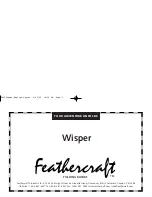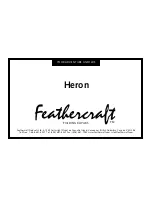
- 13 -
17. ENVIRONMENTAL CONSIDERATIONS
As a boater, you already appreciate nature's beauty and the peace of the great outdoors. It is a boater's
responsibility to protect the natural environment by keeping waterways clean.
Don't put anything in the water that you wouldn't eat or drink!
FUEL AND OIL SPILLAGE
The spilling of fuel or oil into our waterways contaminates the environment and is dangerous to wildlife.
Never discharge or dispose fuel or oil into the water; it is prohibited and you could be fined. There are two
common, accidental types of discharge:
•
Overfilling the fuel tank
•
Pumping contaminated bilge water
CAUTION
FIRE/EXPLOSION HAZARD: Fumes from rags can collect in the bilge and be extremely
dangerous. Never store rags used to wipe-up fuel or solvent spills in the boat. Dispose of rags
properly ashore.
DISCHARGE AND DISPOSAL OF WASTE
Waste means all forms of garbage, plastics, recyclables, food, wood, detergents, sewerage and even fish
parts in certain water – in short, nearly everything. We recommend you bring back everything you take out
with you for proper disposal ashore.
If you have a marine sanitation device (head or marine toilet) installed, use an approved pump-out facility
at your marine. Many areas prohibit the discharge of sewerage overboard or even an operable overboard
waste discharge.
EXCESSIVE NOISE
Noise means engine noise or even yelling. Many bodies of water have adopted noise limits. Don't use thru-
transom exhaust unless you're well offshore. Music and loud conversation can carry a considerable distance
on water, especially at night.
WAKE AND WASH
Be alert for NO WAKE zones. You may be responsible for any damage or injury caused by your
wake/wash. Prior to entering a NO WAKE zone, come off plane to the slowest steerable speed.
EXHAUST EMISSIONS
Increased exhaust (hydrocarbon) emissions pollute our water and air. Keep your engine tuned and boat hull
clean for peak performance. Consult your dealer and engine manual for information.

































